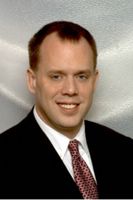Summer Movies with a Social ConscienceTaking a step back from the more serious topics covered in this blog and newsletter, I want to take a look at the most abundant crop of movies and documentaries with a social conscious since ... well, ever. Michael Moore showed Hollywood left-wingers how to not only get their message across, but also make a cool hundred million or so. But, while giving no pardon to the other side's actions and tactics taking place at the same time,
Fahrenheit 911 was a shrill piece of conspiratorial infotainment that did its part to take an ugly election year to the gutter. The group coming out this summer, including
United 93, an
Inconvenient Truth,
Who Killed the Electric Car,
The Republican War on Science, and yes, even Moore's upcoming
Sicko will surely elevate the dialog. At least, we hope so.
I have seen
United 93 and
An Inconvenient Truth, and both were excellent. The former was a movie-going experience as gut-wrenching as I've ever seen. Directed by Paul Greengrass, the film recounts the horrifying story of the airplane that crashed in Western Pennsylvania on September 11. The film commits the ultimate Hollywood sin... no stars. For this, be grateful. There are no heroes, ala Wesley Snipes or Bruce Willis, who singlehandedly save the day while mugging for the camera with a stupid wisecrack. That would have been a disservice to the true story. There was a wide range of behavior among the passengers who were suddenly confronted with their imminent demise. Some were heroic, others less so. If it is still in a theater near you, you should see it. Own it when it comes out on DVD, and donate an extra one to a schoolteacher. Every kid in America should see it. The film is that powerful.
As Stephen Colbert put it,
An Inconvenient Truth, is the world's longest Powerpoint Presentation. I say that tongue-in-cheek, not least because Al Gore used Apple's
Keynote presentation software, not Powerpoint. It, too, is thoroughly researched, scientifically sound, and alarmist, but appropriately so, given the gravity of the situation.
Salon.com has a great review on how accurately Al Gore presented the case, and as it turns out, it's pretty solid. Given the awesome complexity of the problem along with the difficulty of not boring moviegoers with a college lecture, the job was done commendably. This film, too, should be shown to every student.
Who Killed the Electric Car? comes out at the end of June, and it features the story of the General Motors'
(NYSE: GM) attempt at building an electric car, the EV1. I have only seen the trailer, but I know a little of this story. In the mid-1990's, as I understand, the electric car was mandated by the state of California. While I gather that the movie is about the conspiracy of monied interests vested in the status quo, there was a multitude of technical problems. Unlike today's hybrids which run on electricity and gasoline, the EV1 only required electricity. From an emissions standpoint, that's great. Practically, the prospect of running out of juice while on the highway added more pain than the average consumer was willing to deal. Further, charging the battery required hours of wait time. If one got low on the highway, you faced the prospect of waiting four hours to get enough juice to continue. Everyone knows how inconvenient it is when your cell phone runs out of juice at the wrong time. I resided in California at the time, and the papers were full of horror stories about stranded motorists who weren't able to reach a power outlet in time.
The Republican War on Science does not yet have a firm release date. The movie is from Morgan Spurlock, who brought us the excellent
Super Size Me and the TV show,
30 Days. I have not seen a trailer, but most of us know how willingly the current administration fiddles with scientific data to suit political goals. The public is woefully unaware of this issue, and if Spurlock can pull it off with the same gusto as
Super Size, I can't wait.
While nobody doubts Michael Moore's talent as an entertainer, I have been less impressed with his ability to tackle an issue fairly. Yes, many people defend him by saying that as a documentarian, he is not obliged to cover anything fairly. In the upcoming
Sicko, Moore explores a conspiracy between insurers, pharmaceutical makers, medical establishments, and of course, George Bush, to bilk the public out of trillions while we all collectively become sicker. I, of course, have not seen the movie, but I fear that the topic is more multi-layered than Moore will explore. His modus operandi has always been the super-charged emotional pictures along with the ambush. He could learn a lot from Al Gore.














